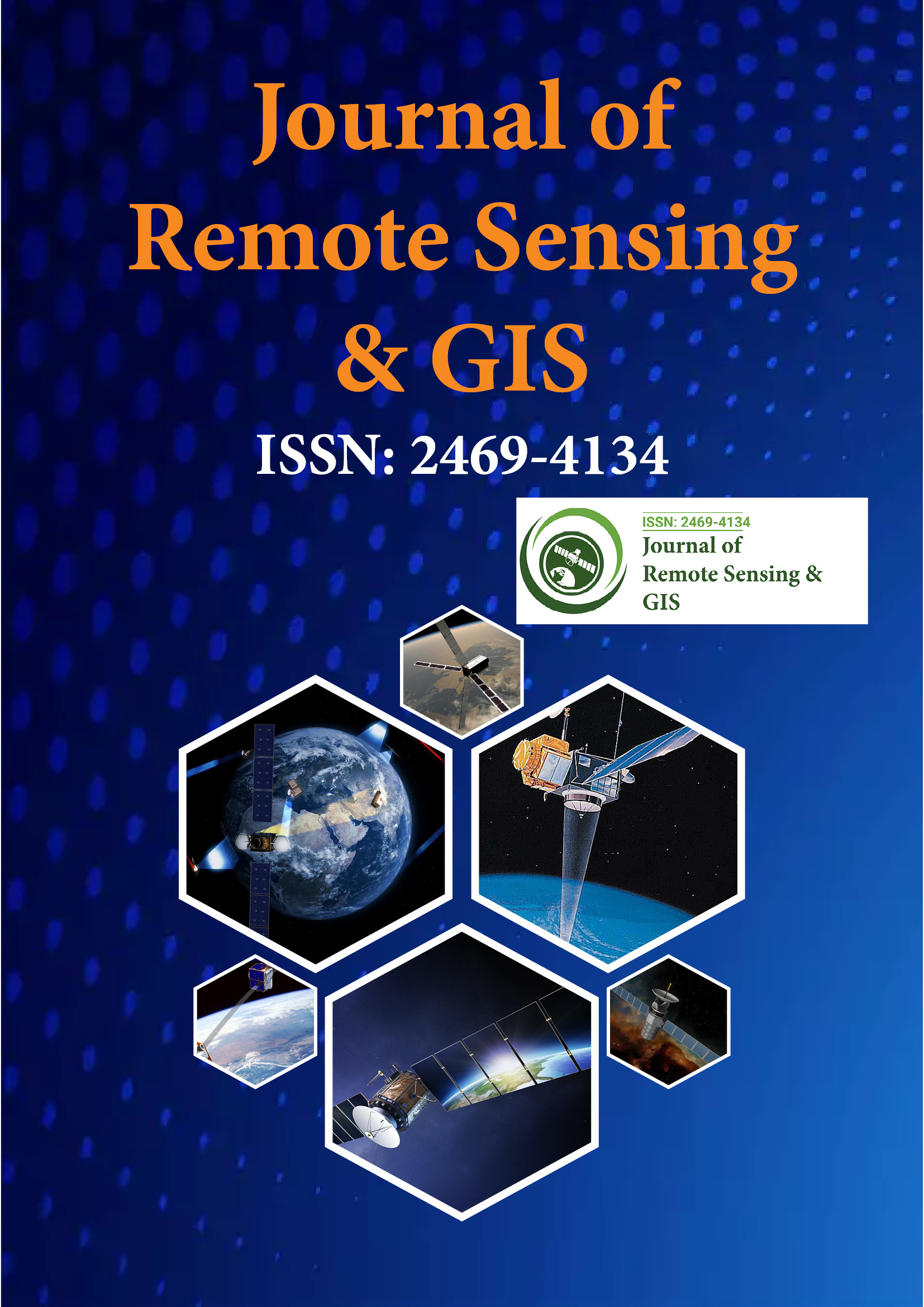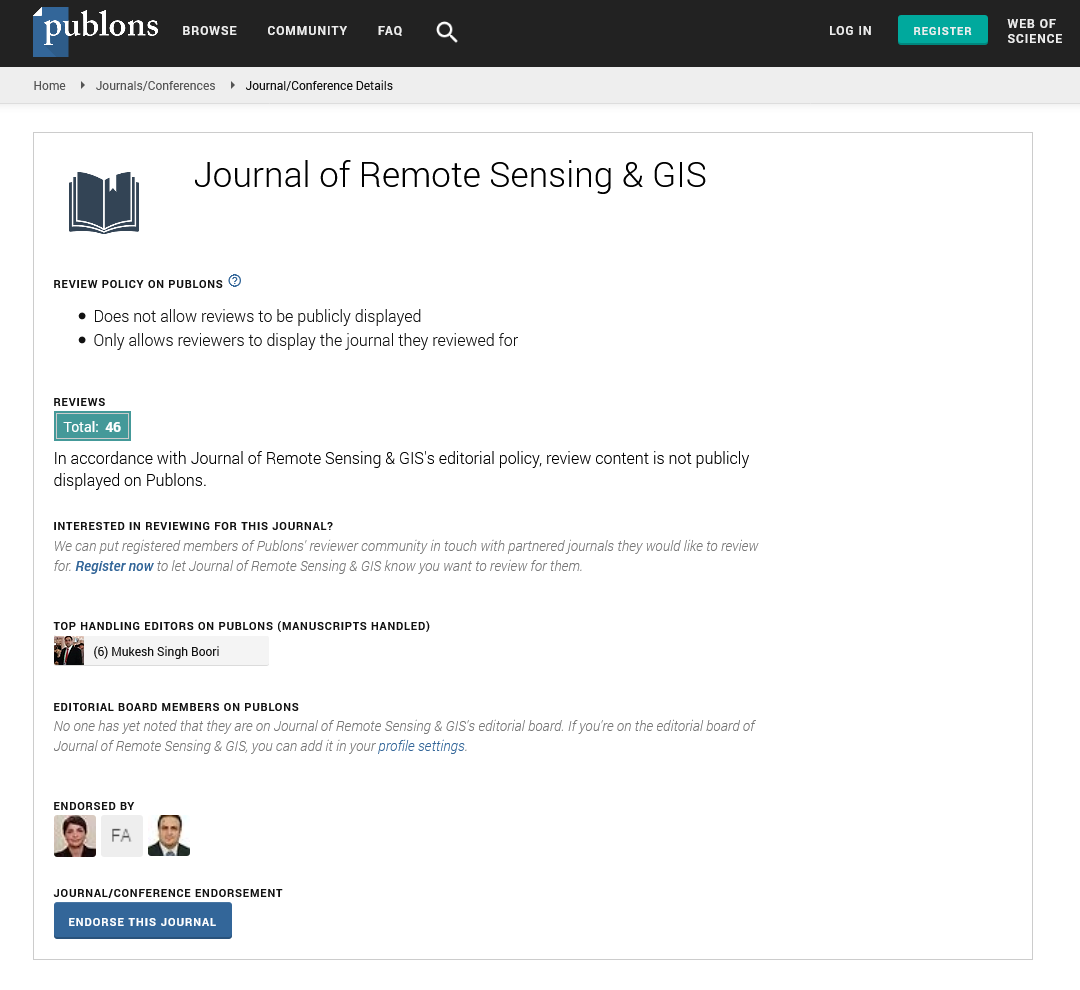Indexed In
- Open J Gate
- RefSeek
- Hamdard University
- EBSCO A-Z
- OCLC- WorldCat
- Publons
- International Scientific Indexing
- Euro Pub
- Google Scholar
Useful Links
Share This Page
Journal Flyer

Open Access Journals
- Agri and Aquaculture
- Biochemistry
- Bioinformatics & Systems Biology
- Business & Management
- Chemistry
- Clinical Sciences
- Engineering
- Food & Nutrition
- General Science
- Genetics & Molecular Biology
- Immunology & Microbiology
- Medical Sciences
- Neuroscience & Psychology
- Nursing & Health Care
- Pharmaceutical Sciences
Abstract
Assessment of Land Use and Land Cover Change Using GIS and Remote Sensing Techniques: A Case Study of Makueni County, Kenya
Mercy C Cheruto, Matheaus K Kauti, Patrick D Kisangau and Patrick Kariuki
The surface of the earth is undergoing rapid land-use/land-cover (LULC) changes due to various socioeconomic activities and natural phenomena. The main aim of this study was to gain a quantitative understanding of land use and land cover changes in Makueni County over the period 2000- 2016. Supervised classification-maximum likelihood algorithm in ERDAS imagine was applied in this study to detect land use /land cover changes observed in Makueni County using multispectral satellite data obtained from Landsat 7 for the years 2000, 2005 and 2016 respectively. The County was classified into seven major LU/LC classes viz. Built up areas, croplands, water bodies, evergreen forests, bush-lands, grassland and bare-land. Change detection analysis was performed to compare the quantities of land cover class conversions between time intervals. The results revealed both increase and decrease of the different LULC classes from 2000 through to 2016. Significant shifts from some classes to others was also observed. Drivers of the observed changes ranged from Climatic factors such as rainfall and drought to socio-economic factors. Consistent LULC mapping should be carried out in order to quantify and characterize LULC changes. This will help establish trends and enable resource managers to project realistic change scenarios helpful for natural resource management.

